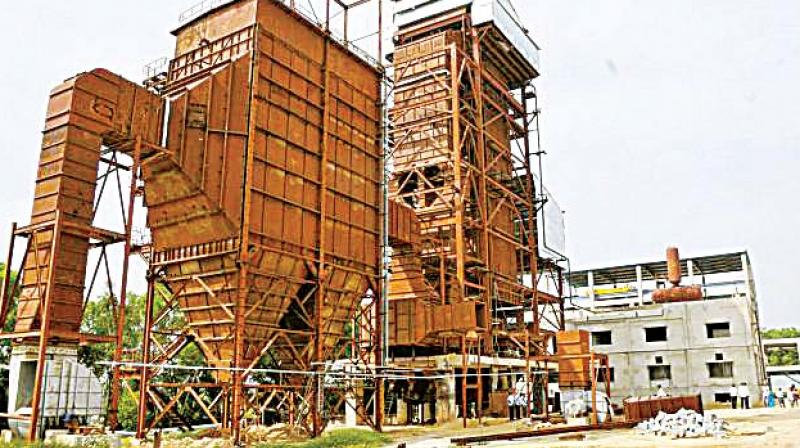Mandur waste-to-energy plant: CAG trashes Karnataka government

Bengaluru: Remember the protests by Mandur villagers for waste-to-energy plant? Now comes the CAG report, which states this whole episode cost the state exchequer Rs 73.34 crore. The report contains detailed information about how a novel project was defeated even after spending a huge sum, which was paid to a private firm.
According to the report, the BBMP had entered into an agreement with Srinivasa Gayathri Resources Recovery Limited (SGRRL) in June, 2005 for establishing an integrated Waste to Energy project at Mandur village, near Bengaluru. The project envisaged setting up an 8 MW power plant for energy recovery through incineration.
As per the report, BBMP handed over 35 acres of land required for the project in September 2005. The total cost of the project was Rs 70.33 crore. As per a project status report submitted in February, 2014 by the developers, they had spent Rs 73.34 crore on the project and an additional sum of Rs 15 crore was required to complete it.
Meanwhile, unscientific dumping of unprocessed Municipal Solid Waste (MSW) on the site had invited huge public protests and the landfill was proposed to be closed. Thus, even after 12 years from inception and spending of Rs 73.34 crore, the integrated Waste to Energy project did not fructify (September 2015) defeating the objective of scientific disposal of solid waste apart from non-realization of generation of power from a renewable energy source.
State-owned airport cabs played with people’s safety: report
Did Karnataka State Tourism Development Corporation Ltd (KSTDCL) play with the safety of its passengers hiring airport cabs? The answer is yes, as per the CAG report. The report says the corporation had entered into agreements with KIAL to operate taxis there.
The terms ensured that vehicles and drivers complied with the operating standards and vehicle type and equipment, as prescribed by KIAL from time to time. The company was permitted to operate 500 AC taxis and 150 non-AC taxis and to pay a minimum monthly guaranteed revenue share to KIALs.
The report says backgrounds of 149 taxi drivers were unverified, 153 drivers had not submitted medical certificates, 111 taxis were used without mandatory insurance, 134 didn’t follow emission norms and 61 didn’t have GPS. Training given to drivers also didn’t meet required standards.
The report also concluded that some 220 taxis were inactive between November 2014 and September 2015 indicating that Mobile Data Terminal tracking devices were switched off, putting the safety of passengers at risk.

